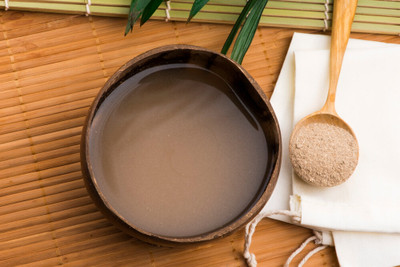Kava Root - Evidence for Medicinal Use
Best Fiji Kava on Mar 11th 2021
Kava Root is thought to be indigenous of the New-Ginea, Indonesia region. It is a member of the pepper family, and its name comes from the Greek meaning "intoxicating." Kava has long been recognized for its ability to help relieve anxiety, stress, depression, and sleep disorders. It has a mild sedative effect that can help alleviate insomnia and increase relaxation as well as sleep quality.
How Kava Root Works
The active ingredient in Kava Root is a group of bioactive constituents called Kavalactones. These Kavalactones, which include Kawain, Dihydrokawain, Methysticine, and Dihydromathystine, are credited with having an effect on the Limbic System in the brain, which is the control center for emotions. This may be behind Kava's relief of symptoms associated with anxiety and depression. Its sedative effects are thought to be derived from Noradrenaline and MAO-B, which is responsible for breaking down Dopamine. Kava is broken down quickly by the gastrointestinal tract, and Kava Root provides fast-acting sedation as a result. The effects of Kava Root are a more sociable and relaxed mood as well as increased sensitivity of the senses. When taken in a higher dose, the relaxation can aid in a deeper sleep.
Supporting Evidence
Research shows that Kava Root has positive effects on patients dealing with anxiety disorders. One study on 101 patients suffering over a 25 week period examined the effects of Kava Root on their symptoms. The Kava Root showed significant superiority over placebo when the patients' anxiety symptoms were assessed using the Hamilton Ratings Scale for Anxiety. It also showed that the side effects of Kava Root are rare and mild.
Another study looked at the effects of Kava Root on both physiological and psychological responses to mental stress. Fifty four volunteers were asked to perform a variety of mental stress tasks while the researchers monitored physiological signs of stress such as blood pressure and heart rate as well as psychological signs of stress using subjective reports from the volunteers. The assessments were done while the volunteers were at rest and then again while they were performing the stressful tasks. The first session was done without the influence of either Kava Root or placebo. One week later, after 7 days of treatment with either Kava Root or placebo, the volunteers again performed the tasks and were monitored for signs of stress. The group receiving the Kava Root showed a significant decrease in blood pressure when compared to placebo, which points to the possibility that Kava Root may increase physiological resistance to stress.
Kava Root Usage
Kava Root extract has been found to be most effective in standardized extracts containing 30% Kavalactones. Standard dosages range from 100mg to 1000mg daily.
Kava Root has not been shown to produce any significant adverse side effects when taken in moderation. Heavy use in doses between 500mg and 2000mg daily for three months or longer has been shown to cause dizziness, drowsiness, and mild gastrointestinal discomfort in some people.
In recent years questions have arisen as to a possible connection between Kava Root and liver damage. Kava Root users in Germany reported liver damage while taking Kava Root. Further study of these reports showed that there were other factors that more likely contributed to the liver damage, and that Kava Root was most likely not the cause of the damage. Another independent study in students came to the same conclusion. Kava Root has an excellent safety record, and these reports appear to be largely unfounded.
The content here presented above on kava and alternative health principles is for general information and facts only. Please don't take this information to spot, treat or heal any illness or medical conditions. Any health or safety related issues rising due to individual application of our products should be further researched. Therefore the advice of a medical professional is requested for hypersensitive reactions to unique ingredients.
